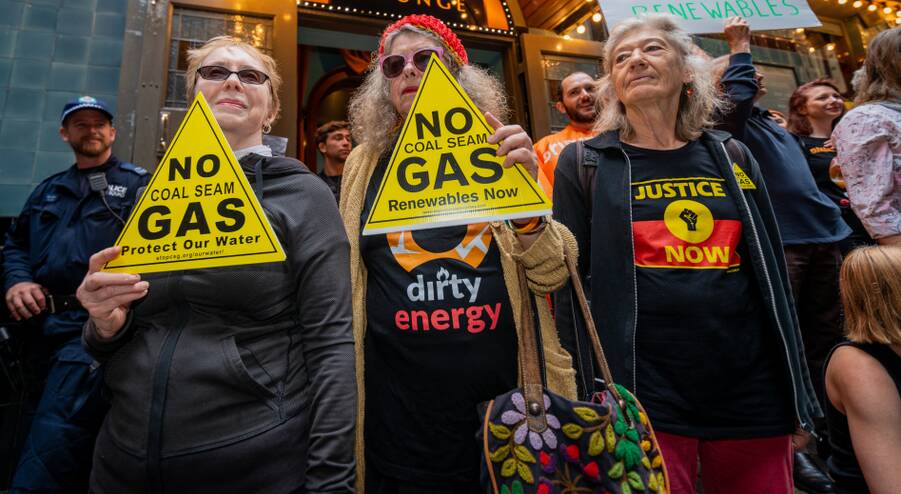George Bender, a Chinchilla cotton farmer, committed suicide in 2015 after a 10-year battle with coal seam gas companies to stop damage to underground water bores.
Since then, discontent in rural community has ebbed and flowed, but a simmering anger is always present. Yet the industry has continued with thousands of government mine approvals on good agricultural land.
Recently, Toowoomba Council voted for a moratorium on coal seam gas projects in the Darling Downs region because of land subsidence and interference with local aquifers.
Over two decades, more than 9000 coal seam gas wells have been developed west of the Toowoomba council area by Arrow Energy in highly productive agricultural land.
The health of those living and working near gas wells is threatened as detailed in a review of 300 scientific papers from some of the most eminent institutions.

When a well is drilled, gas and toxic water from shale or coal seams may be released spontaneously. However fracking is usually needed, which forces water under great pressure down the well into the shale or coal seams. This brings methane and toxic water to the surface.
Some returning gas leaks and pollutes the air with toxic chemicals from the coal seams, together with the cocktail of chemicals used the lubricate the process.
One Amercian study indicates that air pollutants from oil and gas operations caused 410,000 asthma exacerbations, including 2200 new cases and 530 visits to emergency departments, 1500 additional respiratory hospitalisations; 270 heart attacks in addition to the expected number; and 7500 premature deaths in the United States in 2016, at a financial cost estimated at US$77 billion.
On hot sunny days the methane which leaks from wells and pipes causes what is known as ground level ozone which is harmful to humans, livestock and crops. In the US, farmers are compensated by government for damaged crops.
This is only a small part of the story. The use of water is prodigious more so in a dying and warming climate and the waste water is contaminated with chemicals harmful to heath.
The normal development of unborn babies is compromised.
There is a higher risk of low birth weight, pre-term delivery and spontaneous abortion, severe birth defects and risk of acute lymphoblastic leukaemia.
These risks are understood by those living in US gas communities, so why does fracking continue?
It seems economic success is more important than human health.
In Australia two studies demonstrate an increase in some of the harms described in the US, yet more projects have been approved.
Why?
Maybe it's the ignorance of politicians and their advisers and pressure from a powerful industry.
The money from the export of gas that increases the world's emissions is apparently more important than human health and the preservation of agricultural land.
- Dr David Shearman, AM PhD FRACP, is emeritus professor of medicine at the University of Adelaide, and co-founder of Doctors for the Environment Australia.
The Fuzzy Logic Science Show is on 11am Sundays on 2xx 98.3FM. Send your questions to AskFuzzy@Zoho.com; Podcast: FuzzyLogicOn2xx.Podbean.com







